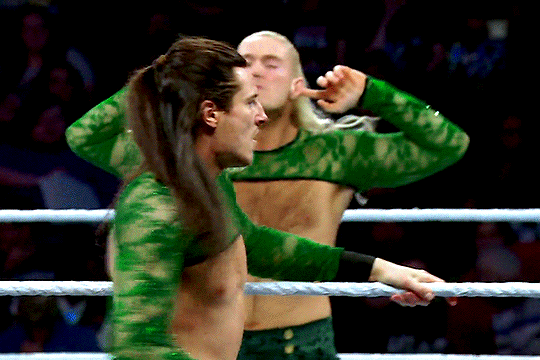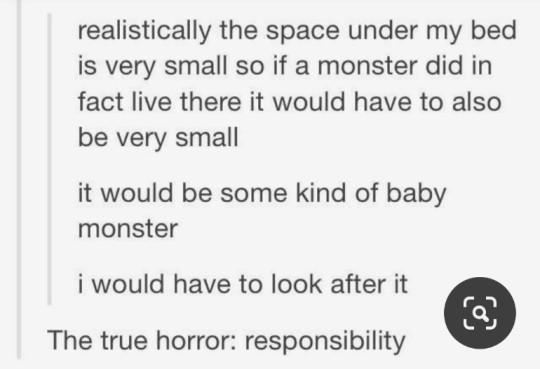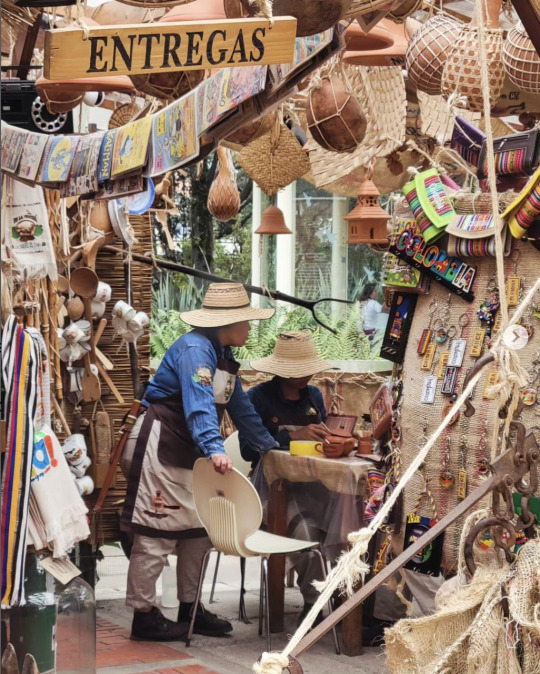Text
Let's talk about transitions.
Transitioning between fast-paced and slow-paced scenes is essential for maintaining the flow of your narrative and keeping readers engaged throughout your story, allowing for moments of reflection, introspection, and character development.
Here are some strategies to smoothly transition between different pacing levels:
Use scene endings and beginnings: End a fast-paced scene with a cliffhanger or revelation that propels the story forward, then transition to a slower-paced scene that allows characters (and readers) to process the events. On the flip side, begin a slow-paced scene with a hook or question that intrigues readers and draws them deeper into the story.
Bridge paragraphs: Include bridge paragraphs between scenes to provide a smooth transition. These paragraphs can briefly summarize the previous scene's events, set the scene for the upcoming events, or transition between different settings, characters, or points of view.
Change in tone or focus: Shift the tone or focus of the narrative to signal a change in pacing. For example, transition from a tense action scene to a quieter moment of reflection by shifting the narrative focus from external events to internal thoughts and emotions.
Utilise pacing within scenes: Even within a single scene, you can vary the pacing to create transitions. Start with a fast-paced opening to grab the reader's attention, then gradually slow down the pacing as you delve deeper into character interactions, dialogue, or introspection. Conversely, speed up the pacing to inject energy and excitement into slower scenes.
Symbolic transitions: Use symbolic elements within the narrative to signal transitions between pacing levels. For example, transition from a fast-paced scene set during a stormy night to a slow-paced scene set in the calm aftermath of the storm, mirroring the shift in pacing.
Foreshadowing: Use subtle foreshadowing in fast-paced scenes to hint at upcoming events or conflicts that will be explored in slower-paced scenes. This creates anticipation and helps to smoothly transition between different pacing levels by maintaining continuity in the narrative arc.
Character reactions: Show how characters react to the events of fast-paced scenes in the subsequent slower-paced scenes. Use their thoughts, emotions, and actions to provide insight into the impact of these events on the story and its characters, helping to bridge the transition between pacing levels.
See my post on pacing for more! ❤
2K notes
·
View notes
Text
"It’s a great setup for class-based conflict even if the whole undercity thing is pretty on the nose, but as a metaphor for capitalism it fails to acknowledge the ways in which power structures are perpetuated. Piltover was constructed on the suffering of Zaun, it’s true, but Zaun no longer functions as a part of Piltover’s power structure. It doesn’t generate wealth for Piltover through productivity, but rather exists solely as a threat to Piltover. The people of Zaun are not the working poor whose labor props up the Piltover elite. The council has no economic reason to keep Zaun destitute, and in fact, Piltover would almost certainly benefit from rehabilitating Zaun into a functioning society that can produce surplus value for them. The fact that Zaun only exists as an antagonist for Piltover is a misrepresentation of the actual mechanics of capitalism and serves to vilify the underclass."
#Arcane#writeblr#writeblr community#writers on tumblr#writers of tumblr#writing community#writblr#netflix arcane
1 note
·
View note
Text
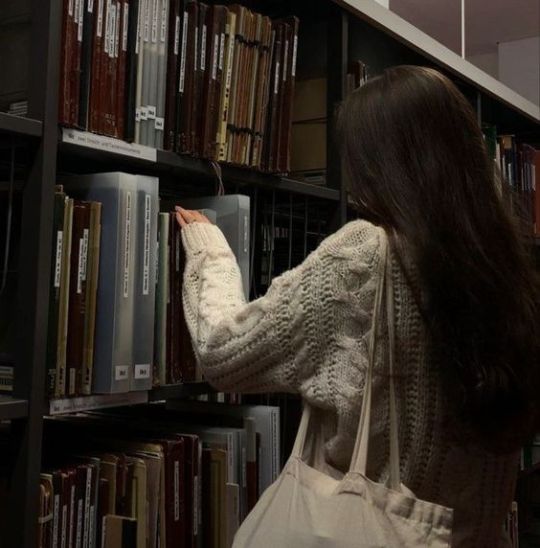

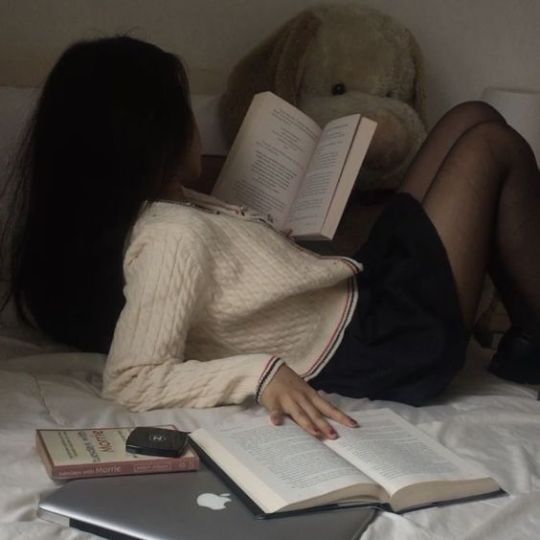
Toxic romanticization of studying
In a word of introduction, my profile partly shows that studying and exploring is wonderful. But as a person involved in science*, I would like to show healthy and true patterns of this beautiful adventure in acquiring knowledge.
The inspiration for writing this post this time was not the phenomenon from Tumblr (although you can also observe it here), but from Pinterest. There you can come across cycles composed of quotes and photos whose aim is to motivate young girls to learn, succeed and get good grades. These images often also show examples of characters from movies, TV series or real life that you can aspire to be like. Overall, I have to agree that it really works! But I would like to draw attention to certain elements that need to be verified.
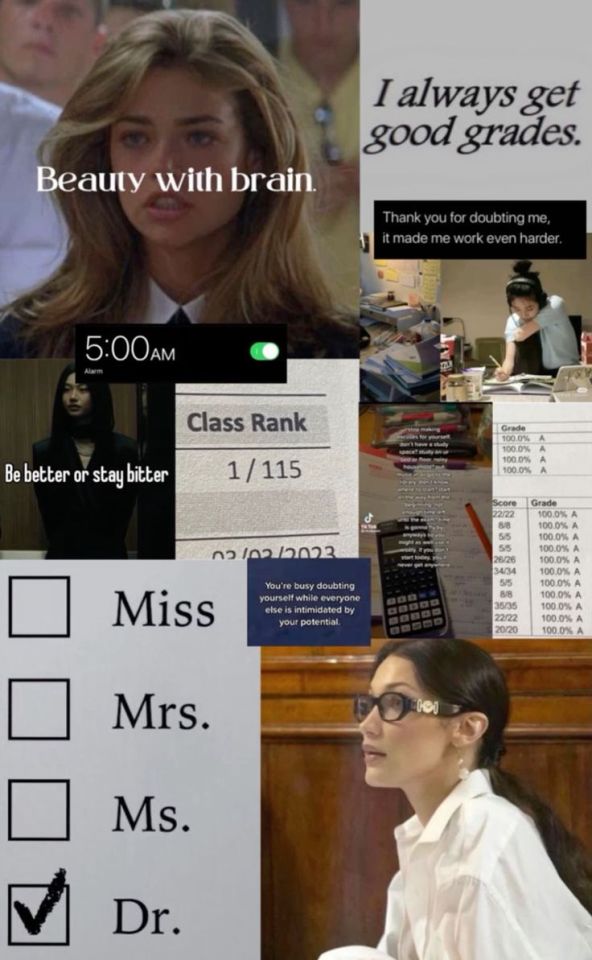
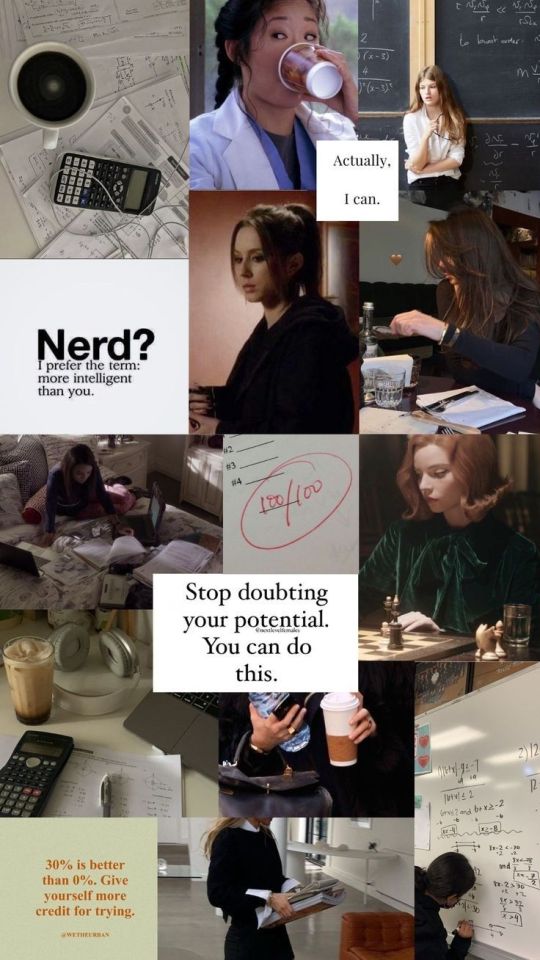
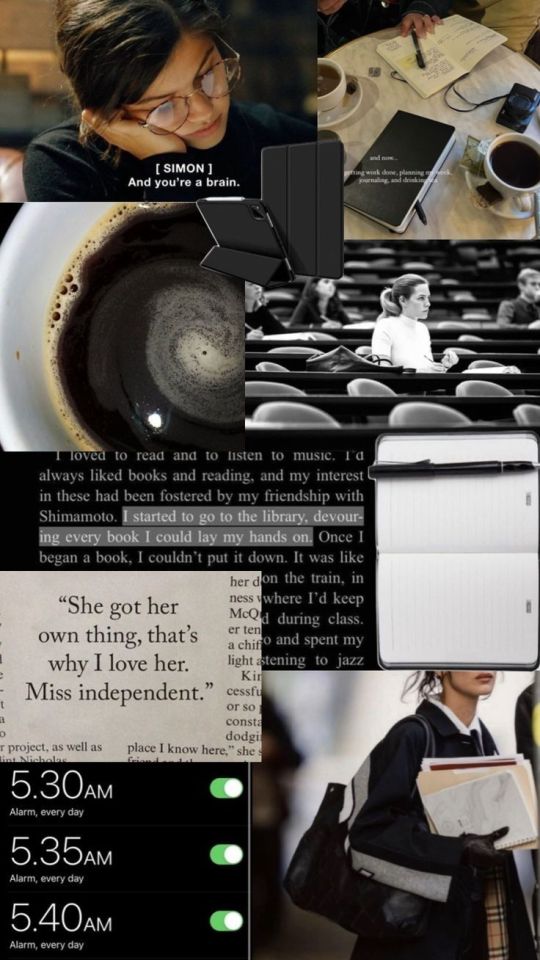
1. You shouldn't get up at 5am
First of all, the correct amount of sleep is one of the most important factors affecting the proper and effective functioning of our brain. During sleep, nerve cells regenerate, organize information acquired during the day and consolidate memory traces, which is directly related to learning. Lack of sleep increases impulsivity, deepens negative thinking and slows down the body's reaction time!
2. You can be a genius without good grades
Of course, good grades are a pleasant confirmation of our knowledge and praise for hard work. However, sometimes it is worth considering whether the structure of exams themselves, especially those with closed questions, affects the results. We often study for one specific exam, the knowledge of which may be very… limited and sometimes not useful, so it is worth prioritizing the topics that we study hard.
3. It's not cool to think you're better than others
We are different and have different priorities in life. It is also worth considering how many people escape from the rat race and start a slow, stress-free life. So we have to agree that judging people based on grades or responses under stress (sic!) is not cool.
The good thing about romanticizing studying
As I have already said, these types of collages are really motivating. So let's talk about what's great about them and what's worth highlighting and saving for later.
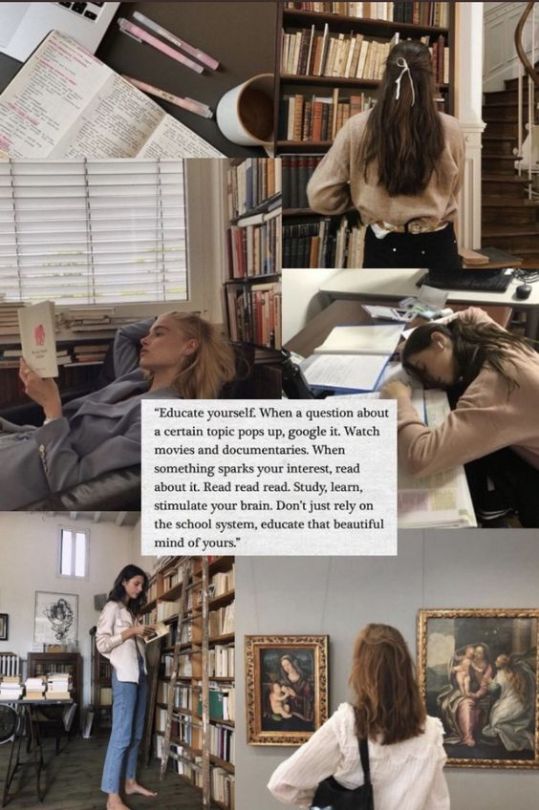
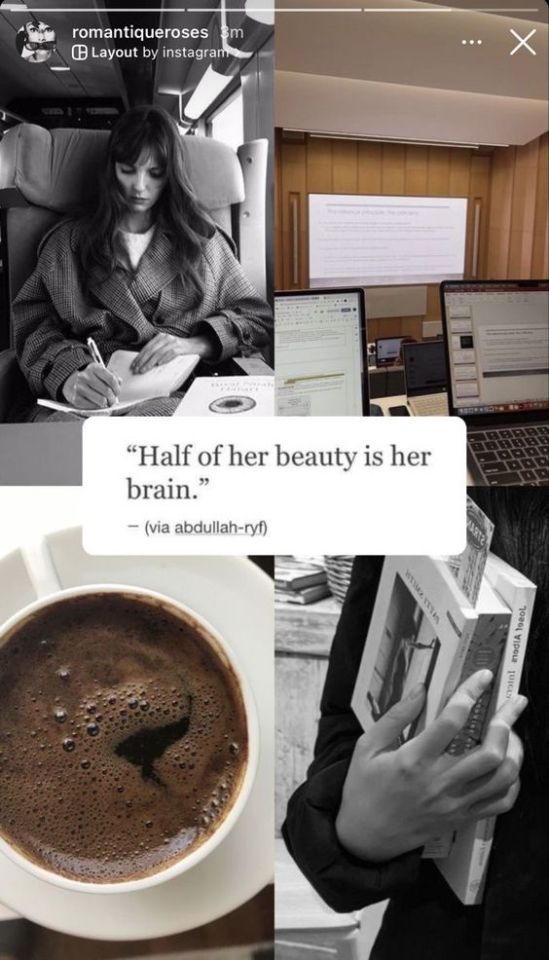
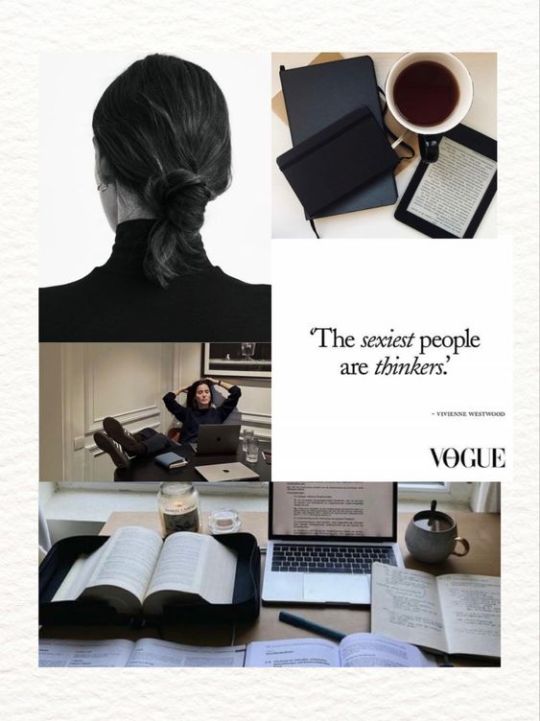
1. Knowledge is beautiful, but your outfit and surroundings can also be
We know that we should never judge a book by its cover, but… the issue of social perception painfully confirms that we do and will continue to do so because this is how our brains work. And isn't it nice when someone looks at us and thinks this girl is so classy?
Moreover, a nice outfit that makes us feel good gives us a lot of self-confidence. There are also many studies confirming the positive impact on motivation and concentration of a neat and aesthetic workplace.
2. Not just cramming, but also discovering
Broadening your horizons is easier with passion and real commitment. And to achieve this, the topics must really interest us. Not everyone has yet found something that they are extremely passionate about in science, so that is why you have to dig deeper and discover different areas.
3. Don't be afraid to use your knowledge in practice
Schools and universities, unfortunately, have their own rules and they do not always allow you to show your 100% potential. Thus, share your knowledge with others externally, write essays, blog and social media. This form of activity also makes you learn things faster and easier. In addition, contacts with others will expand your knowledge.
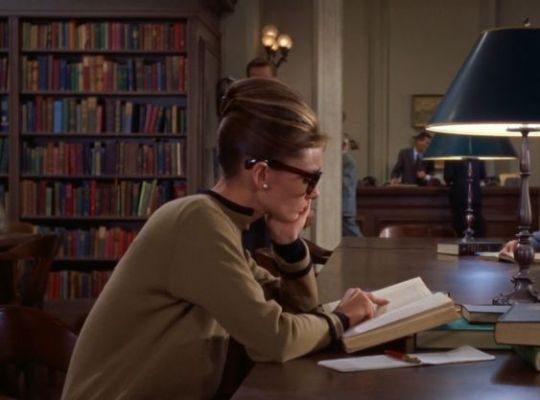
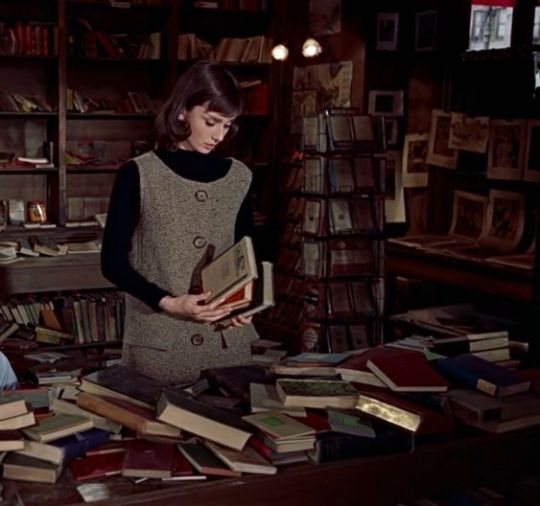
Therefore, I must say that it is worth choosing your inspirations carefully. Nothing helps you enjoy studying better than a clear head and lack of prejudices.
*This post was inspired by my own experience with studying. If anyone is interested, I think I can share my mistakes that did not help me in an academic adventure :)
179 notes
·
View notes
Text
So we all know that Tumblr is US-centric. But to what degree? (and can we skew the results of this poll by posting it at a time where they should be asleep?)
Reblog to increase sample size!
51K notes
·
View notes
Text
Along the way we have even lost the right to call ourselves Americans, although the Haitians and the Cubans appeared in history as new people a century before the Mayflower pilgrims settled on the Plymouth coast. For the world today, America is just the United States; the region we inhabit is a sub-America, a second-class America of nebulous identity.
— Eduardo Galeano, Open Veins of Latin America: Five Centuries of the Pillage of a Continent.
Follow Diary of a Philosopher for more quotes!
#eduardo galeano#Open Veins of Latin America#Latin America#Colonization#Neocolonialism#quotes#quote#us imperialism#imperialism#colonialism#colonial violence#gradblr#studyblr#academia#dark academia#chaotic academia#book quotes#latino#South america#latinx#hispanic#latina#US History#History#latin#America#USA
8 notes
·
View notes
Text
The key shortcut of "windows key" and "." held together has changed my life
like
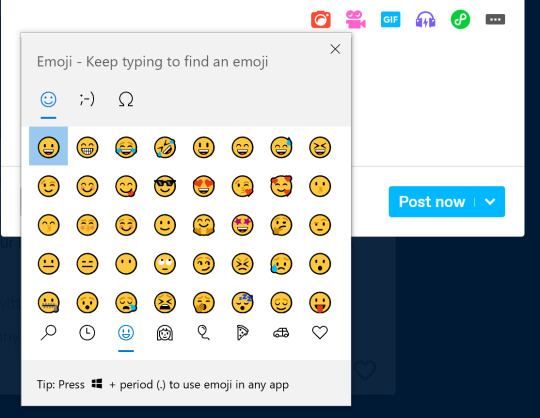
emoji access? supremely powerful 🙂💖
But

Kaomoji ?
The year is 2013 and I am unstoppable ヾ(•ω•`)o o(* ̄▽ ̄*)ブo(*°▽°*)o
212K notes
·
View notes
Text
the older I get, the more the technological changes I've lived through as a millennial feel bizarre to me. we had computers in my primary school classroom; I first learned to type on a typewriter. I had a cellphone as a teenager, but still needed a physical train timetable. my parents listened to LP records when I was growing up; meanwhile, my childhood cassette tape collection became a CD collection, until I started downloading mp3s on kazaa over our 56k modem internet connection to play in winamp on my desktop computer, and now my laptop doesn't even have a disc tray. I used to save my word documents on floppy discs. I grew up using the rotary phone at my grandparents' house and our wall-connected landline; my mother's first cellphone was so big, we called it The Brick. I once took my desktop computer - monitor, tower and all - on the train to attend a LAN party at a friend's house where we had to connect to the internet with physical cables to play together, and where one friend's massive CRT monitor wouldn't fit on any available table. as kids, we used to make concertina caterpillars in class with the punctured and perforated paper strips that were left over whenever anything was printed on the room's dot matrix printer, which was outdated by the time I was in high school. VHS tapes became DVDs, and you could still rent both at the local video store when I was first married, but those shops all died out within the next six years. my facebook account predates the iphone camera - I used to carry around a separate digital camera and manually upload photos to the computer in order to post them; there are rolls of undeveloped film from my childhood still in envelopes from the chemist's in my childhood photo albums. I have a photo album from my wedding, but no physical albums of my child; by then, we were all posting online, and now that's a decade's worth of pictures I'd have to sort through manually in order to create one. there are video games I tell my son about but can't ever show him because the consoles they used to run on are all obsolete and the games were never remastered for the new ones that don't have the requisite backwards compatibility. I used to have a walkman for car trips as a kid; then I had a discman and a plastic hardshell case of CDs to carry around as a teenager; later, a friend gave my husband and I engraved matching ipods as a wedding present, and we used them both until they stopped working; now they're obsolete. today I texted my mother, who was born in 1950, a tiktok upload of an instructional video for girls from 1956 on how to look after their hair and nails and fold their clothes. my father was born four years after the invention of colour televison; he worked in radio and print journalism, and in the years before his health declined, even though he logically understood that newspapers existed online, he would clip out articles from the physical paper, put them in an envelope and mail them to me overseas if he wanted me to read them. and now I hold the world in a glass-faced rectangle, and I have access to everything and ownership of nothing, and everything I write online can potentially be wiped out at the drop of a hat by the ego of an idiot manchild billionaire. as a child, I wore a watch, but like most of my generation, I stopped when cellphones started telling us the time and they became redundant. now, my son wears a smartwatch so we can call him home from playing in the neighbourhood park, and there's a tanline on his wrist ike the one I haven't had since the age of fifteen. and I wonder: what will 2030 look like?
27K notes
·
View notes
Text

my experience reading one hundred years of solitude by gabriel garcia marquez
379 notes
·
View notes
Text
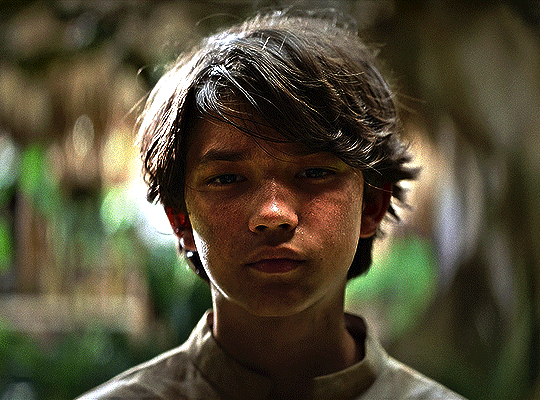

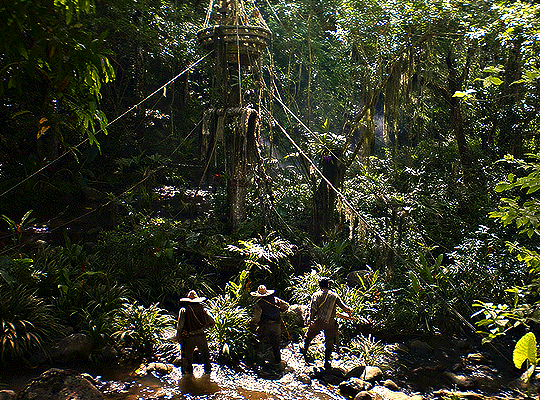

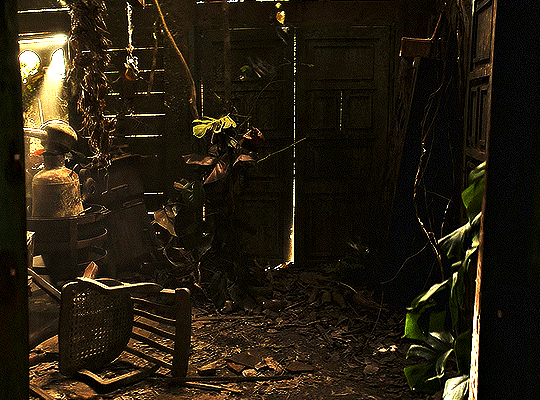
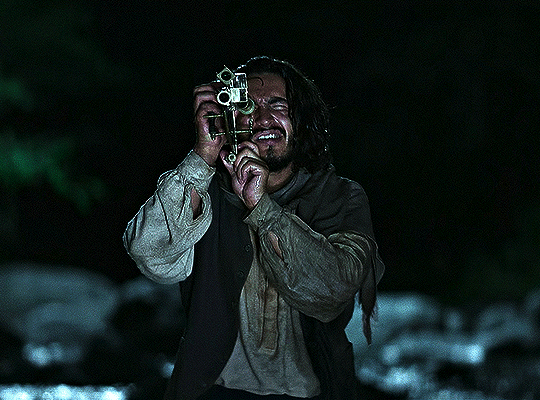





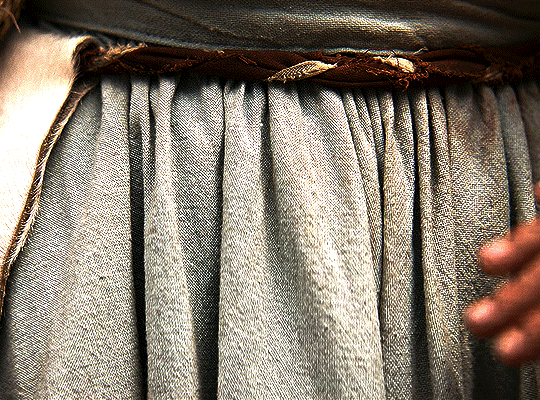
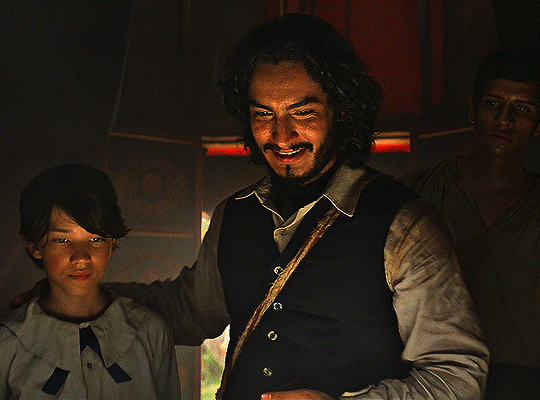
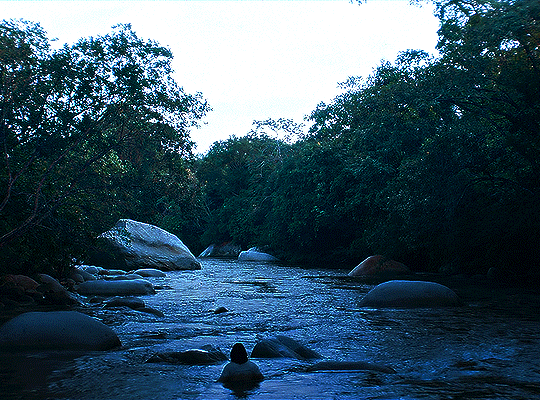
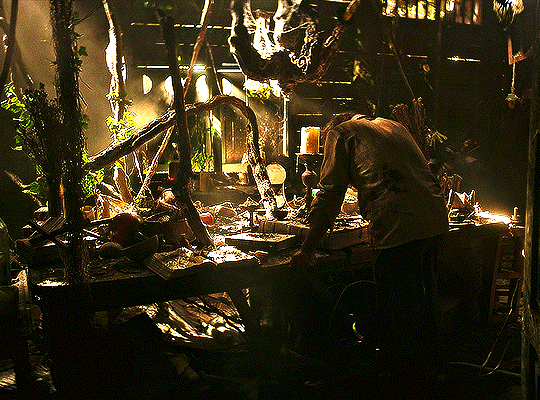


One Hundred Years of Solitude (2024)
#one hundred years of solitude#gabriel garcía márquez#tvedit#ohyosedit#cien años de soledad#drama#fantasy#history#by zil
312 notes
·
View notes
Text
youtube
One Hundred Years of Solitude, Official Teaser Trailer, Netflix!
Bonus: Crash Course on the Nobel Prize-winning Novel :)
youtube
youtube
#One Hundred Years of Solitude#gabriel garcia marquez#Cien años de soledad#Literature#nobel prize for literature#Lit#Colombia#South America#Latin America#Youtube#colonialism#post colonialism#neo colonialism#banana republic
1 note
·
View note
Text
So.... we are running out of water, and it's starting to get a bit scary. Where will we get water if the last of the reserves dries up and it doesn't rain? Who will help us if it comes to that? Humans can't go very long without water... And if the government starts cutting the electricity off at night in an attempt to slow down our water consumption (our electricity is water-powered), then that means no security cameras, no street lights, and no electric fences... In other words, no defences. I don't know guys... this doesn't look good.
2 notes
·
View notes
Text

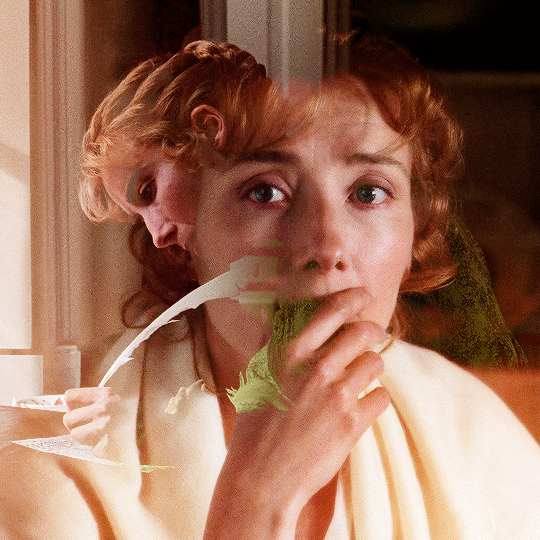
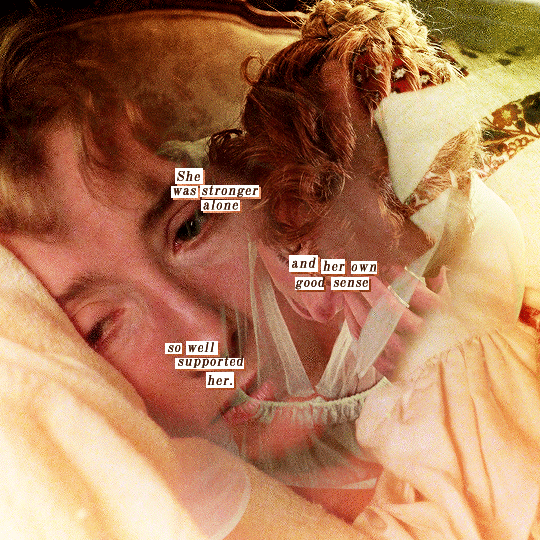

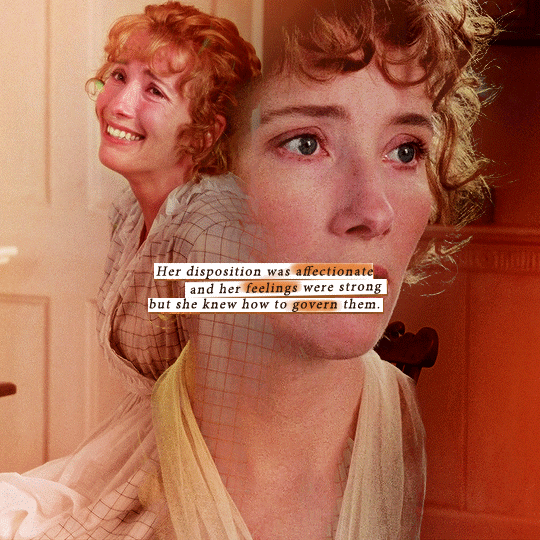
Elinor Dashwood + autumn colors 🍂
(requested by anonymous)
705 notes
·
View notes

